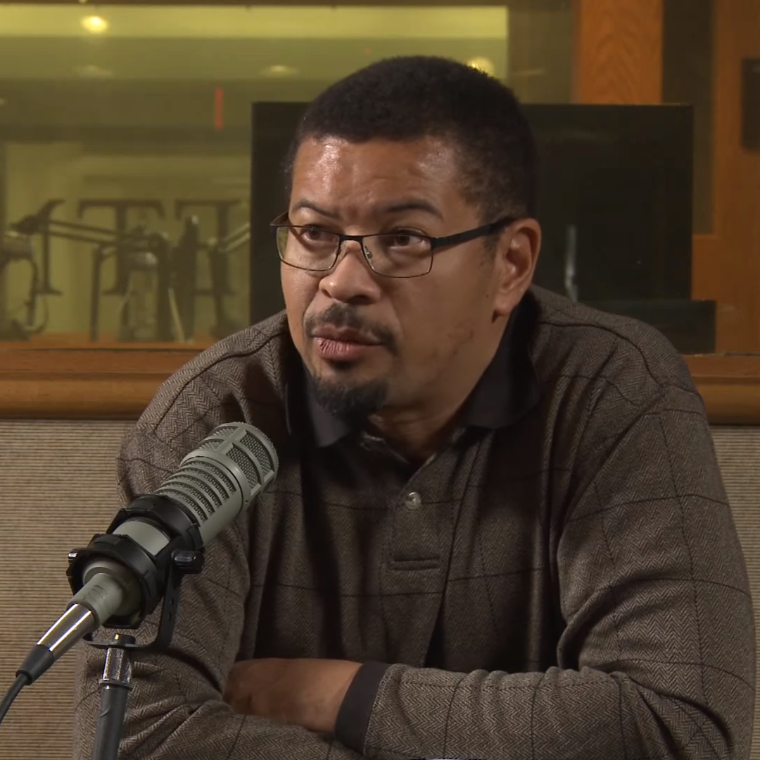Wheaton College M.A. Biblical Studies faculty are regularly publishing books in their areas of discipline and interest.
Despite the return of the Hebrews from the Babylonian exile, selfishness, apathy and despair crippled their community spirit. In response to this distress, God raised up three prophetic voices in Jerusalem. Haggai rallied the people to rebuild the Second Temple. Zechariah was given visions of the return of the glory of the Lord to Zion. Malachi preached repentance, covenant justice and restoration of proper temple worship. Dr. Andrew Hill's excellent commentary on these oracles shows how they remain timely for the Christian church’s worship and mission in the world.
The purpose of studying the Old Testament is to understand God and his redemptive work more fully. However, this goal is complicated by the fact that it was transmitted through a very different language and culture from our own. Dr. Andrew E. Hill and Dr. John H. Walton provide an indispensable guide for undergraduate students and other readers by exploring the literary, historical, and theological issues behind the Old Testament and its various books.
These accessible commentaries are for anyone who wants to enter a serious study of God's Word. Each volume guides the reader through the literacy and theological issues in the text and provides correlation to multiple numbering systems for word study. This volume includes the entire NLT text of Hosea―Malachi, translation notes, and fresh expository commentary.
First and Second Chronicles are a narrative steeped in the best and worst of the human heart—but they are also a revelation of Yahweh at work, forwarding his purposes in the midst of fallible people. God has a plan to which he is committed. Today, as then, God redirects our vision from our circumstances in this turbulent world to the surety of his kingdom, and to himself as our source of confidence and peace. Exploring the links between the Bible and our own times, Dr. Andrew Hill shares perspectives on 1 and 2 Chronicles that reveal ageless truths for our twenty-first-century lives.
The message of Malachi came at a time of cultural and religious rethinking for Israel (roughly 500 B.C.E), when God's people were scattered throughout the Near East, with most living in Mesopotamia under Persian rule. They could easily have disappeared from history had it not been for the prophetic call to repentance. In his fresh new translation, notes, and comments on this brief prophetic book, Dr. Andrew Hill explains why we should pay attention to Malachi as God's spokesperson. Hill places the book in its historical context to interpret the original meaning, as well as offer the modern reader insights into what it has to say to us today. With a wonderful insert filled with photographs, line art, and maps, he provides all the necessary details for the reader to understand and appreciate Malachi.
Dr. Andrew Hill provides an exhaustive study of what the Old Testament says about worship renewal, including its form, function, place, and expression. Includes illustrations.
Dr. Daniel I. Block examines worship in the Bible, offering a comprehensive biblical foundation and illuminating Old Testament worship practices and principles. He develops a theology of worship that is consistent with the teachings of Scripture and is applicable for the church today.
At its heart, Deuteronomy records the covenantal relationship between God and his people. God graciously has chosen Israel as his covenant partner and has demonstrated his covenantal commitment to them. Moses challenges the Israelites to respond by declaring that Yahweh alone is their God and by demonstrating unwavering loyalty and total love for him through obedience. Dr. Daniel I. Block highlights the unity between the God depicted in Deuteronomy and Jesus Christ. Christians who understand the covenantal character of God and who live under the grace of Christ will resist the temptation to retreat into interior and subjective understandings of the life of faith so common in Western Christianity. Learn more >>
Dr. Daniel I. Block explores the relationship between ancient Near Eastern nations and their respective deities. He demonstrates how this relationship was expressed in everyday life, national identity, and history. Israel’s theocratic culture is illuminated in comparison to other Near Eastern cultures.
To most modern readers the book of Ezekiel is a mystery. Few can handle Ezekiel's relentless denunciations, his unconventional antics, his repetitive style, and his bewildering array of topics. This excellent commentary by Dr. Daniel I. Block makes sense of this obscure and often misunderstood prophet and demonstrates the relevance of Ezekiel's message for the church today.
A chapter-by-chapter exegetical commentary by Dr. Gene Green including detailed discussions of the Greek texts and the context in which they were written.
Mining new knowledge about the first-century world of Thessalonica, Dr. Gene Green offers a masterful analysis of The Letters to the Thessalonians. His comprehensive study of the people, their history, socioeconomic conditions, and religious beliefs illuminates his careful verse-by-verse commentary, providing you with an in-depth look at what these pastorally astute letters say about perseverance amid suffering and trials, attitudes toward work, questions concerning Christ's second coming, and more.
Dr. Gary Burge, Dr. Lynn Cohick, and Dr. Gene Green carefully develop how Jewish and Hellenistic cultures formed the essential environment in which the New Testament authors wrote their books and letters. They argue that knowing the land, history, and culture of this world brings remarkable new insights into how we read the New Testament itself. Numerous sidebars provide windows into the Jewish, Hellenistic, and Roman worlds and integrate this material directly with the interpretation of the literature of the New Testament.
This volume offers a fresh approach to the question, "Who was Jesus? " Integrating the findings of contemporary Jesus scholarship, Dr. Nicholas Perrin explains how Jesus saw himself and his movement as a reconstitution of the temple. By viewing Jesus as temple, Perrin reveals an enriched understanding of Jesus's self knowledge, ministry, teachings, death, and resurrection and closes the gap between the historical Jesus and the proclamation of the early church.
Dr. Nicholas Perrin takes on Ehrman and others who claim that the text of the New Testament has been corrupted beyond recognition. Perrin, in an approachable, compelling style, gives us a layman's guide to textual criticism so that readers can understand the subtleties of Ehrman's critiques, and provides firm evidence to suggest that the New Testament can, indeed, be trusted.
Since its discovery in the mid-1940s, the Gospel of Thomas has aroused the interest of scholars and general readers alike. Thomas, the Other Gospel provides a clear, comprehensive, nontechnical guide through the scholarly maze of issues surrounding the Coptic text. Nicholas Perrin argues that the Gospel derives not from the era of Jesus or even the apostles but from the late second century CE. Further, contrary to what many scholars believe, he maintains that the Gospel was originally written in Syriac rather than in Greek, and he concludes that the real value of the Gospel of Thomas lies not in what it might be thought to say about the "real Jesus" but in what it tells us about early Christianity.
While books about doctrine supply description and analysis of the classic questions of the faith, they often miss the contemporary questions on the minds of readers. This book with contributions by Dr. Vincent Bacote, Dr. Beth Felker Jones, and Dr. David Lauber and other Wheaton College faculty fills that gap. Organized around the key topics of Jesus, the Bible, church, the Holy Spirit, evil, salvation and hope, the sometimes-provocative questions on these topics aim to ring true with the lived experience of real people. Even more, they look to inspire reflection, debate, disagreement, and above all, engagement in what the Christian faith is all about.
According to Dr. Vincent Bacote, Christians need to know how to follow Jesus in every area of life. In The Spirit in Public Theology, Bacote shows how the Dutch politician and church leader Abraham Kuyper lived a thoroughly Christian life. He then explains why Christians need to follow Kuyper by taking their faith into the public sphere. Identifying the characteristics of a true Christian worldview, Bacote demonstrates the need for a public theology that stresses engagement between the church and the world. The Spirit in Public Theology should be required reading for pastors, students, and all Christians who want to take their faith beyond the four walls of the Church.
In revealing and unexpected ways, this book casts light upon the ecumenical breadth of Barth's theology. It is a valuable interpretation of significant facets of Barth's doctrine of God, reflection upon the passion of Jesus Christ, and ethics. In addition, Dr. David Lauber offers a constructive theological proposal for how the descent into hell affects the theological interpretation of Scripture, the trinitarian being and activity of God, and the non-violent and authentic shape of Christian life and witness before our enemies.
Who is the mysterious Holy Spirit, and why does it matter for the Christian life? How do we know when the Spirit is working? Dr. Beth Felker Jones introduces the doctrine of the Holy Spirit in the Wesleyan theological tradition and within the greater church. It covers key biblical bases for thinking about the Spirit, and it seeks to inspire confidence in the Spirit's power.
Dr. Beth Felker Jones articulates a theology of human embodiment in light of resurrection doctrine and feminist political concerns. Through reading Augustine and Calvin, she points to resources for understanding the body in a way that coheres with the doctrine of the resurrection of the flesh. Jones proposes a grammar in which human psychosomatic unity becomes the conceptual basis for sanctification.
Contextualization is the art of translating ideas into a particular situation, place or culture. It is fundamental to communication, which makes contextualization essential in missions. While written with a theoretical perspective, Dr. Scott Moreau also provides real-world examples to provoke both thought and action.
Introducing World Missions, the first volume in the Encountering Mission series, provides readers with a broad overview of the biblical, theological, and historical foundations for missions. It considers personal and practical issues involved in becoming a missionary, the process of getting to the mission field, and contemporary challenges a mission worker must face.




